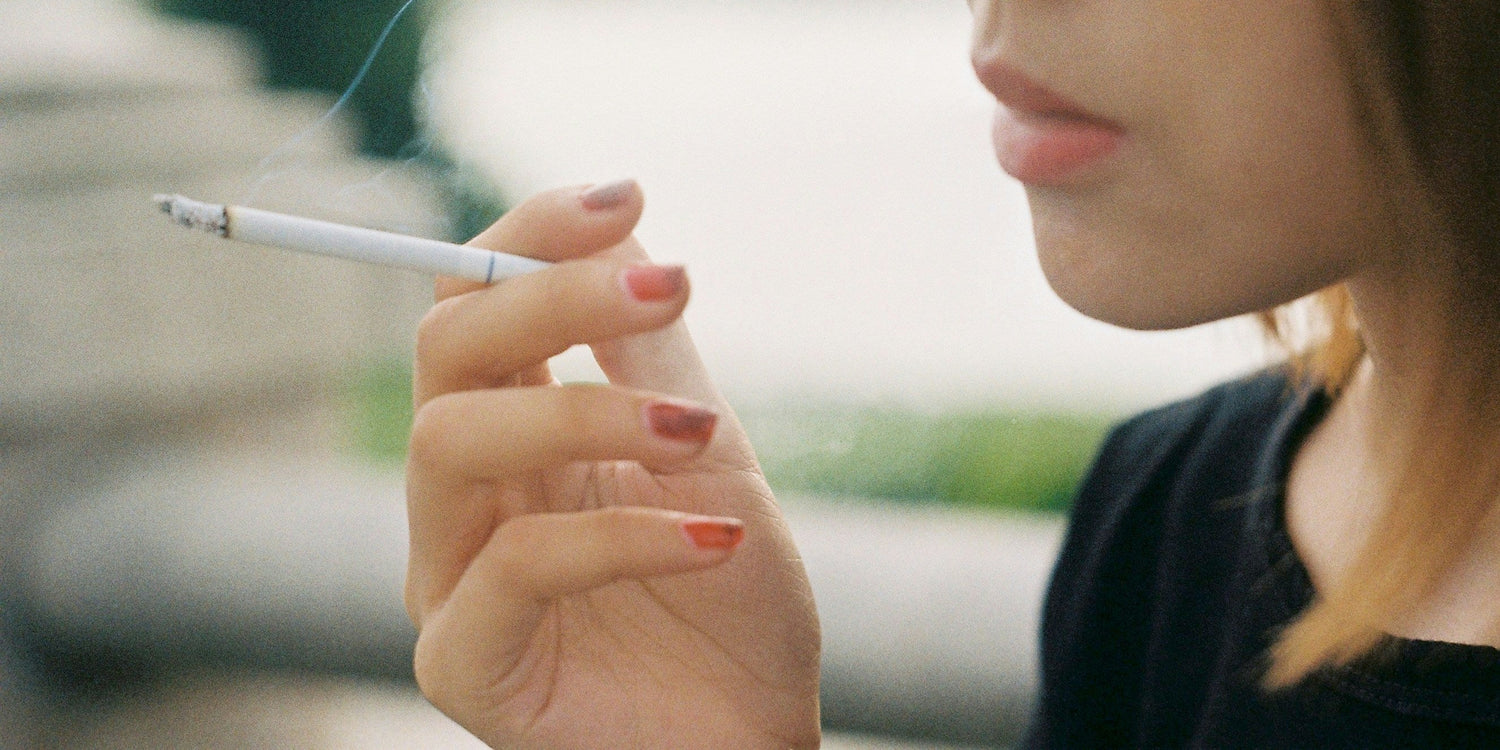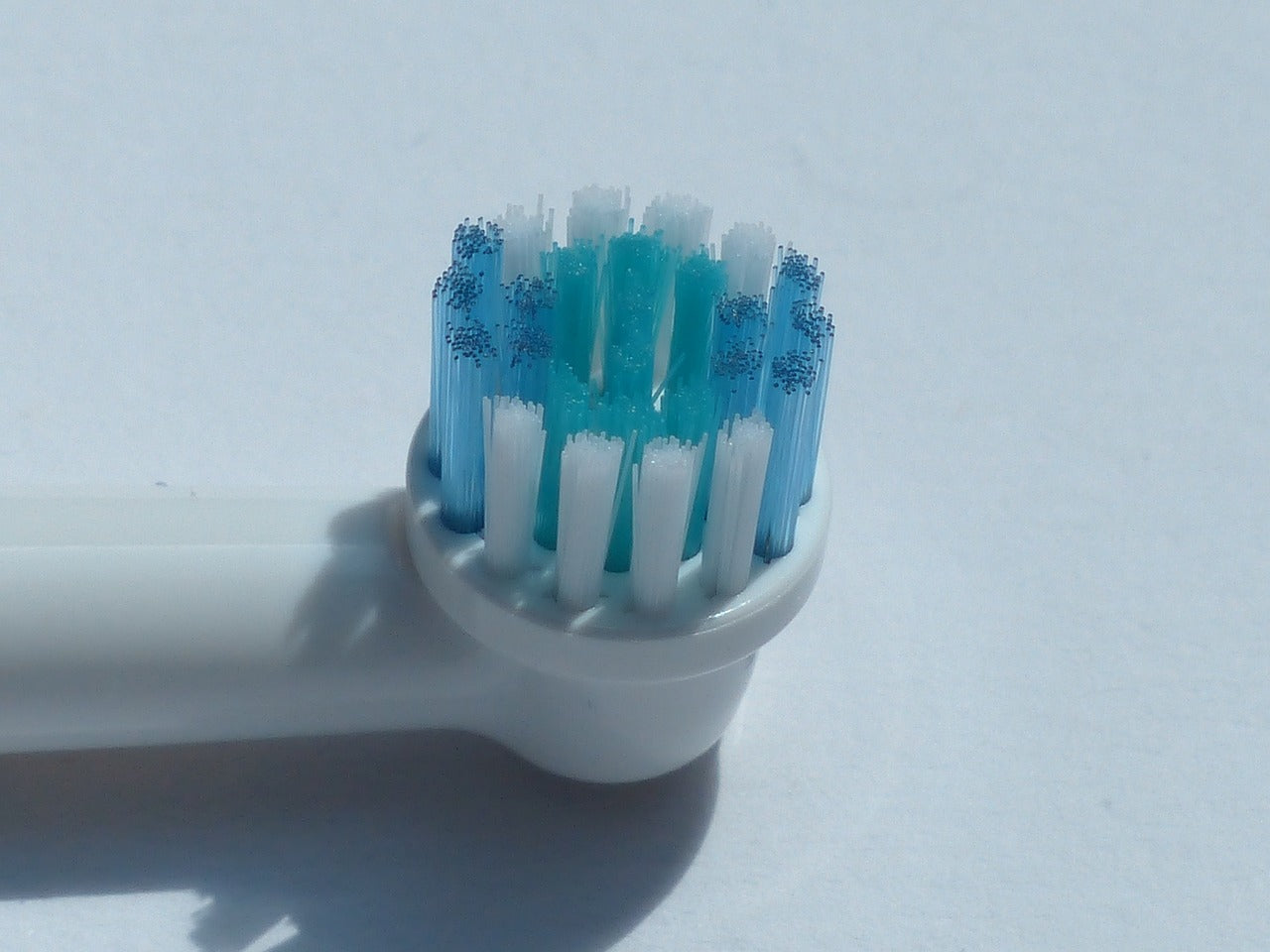Studies show that there are over 5000 different chemicals in tobacco smoke. It's no wonder that smoking is bad for your health - and not just for your lungs. The smoke can also have a negative effect on gums and teeth.
Smokers' teeth are often discolored yellow from nicotine. In addition, there is bad breath. These known side effects are less of a health concern, this is mainly about aesthetics. Teeth can be whitened again by chemical bleaching, but this is expensive in the long run. A dental care chewing gum can help against bad breath after smoking.
However, the damage to the mouth caused by the ingredients of tobacco goes far beyond discoloration and bad breath.
Oral hygiene for smokers: high risk of periodontitis and caries
Smokers are five times more likely to develop periodontitis, or inflammation of the gums, than non-smokers. Gum inflammation often results from poor blood circulation, which is also a consequence of smoking.
In addition to gum disease, smokers also have an easy time with tooth decay. The chemicals in smoke reduce saliva flow and make for a dry mouth. Normally, after eating, saliva rinses numerous bacteria from the teeth, but this automatism is limited in smokers' dry mouths. As a result, the bacteria stick to the teeth better and can spread easily. This is how tooth decay develops, which can lead to painful inflammation of the roots of the teeth, which must be treated by a dentist.
Oral hygiene for smokers: high sensitivity to pain
Treatments at the dentist can be uncomfortable for smokers because the constant intake of toxins keeps the body busy with a continuous detoxification process, which affects the anesthetics used. Local anesthesia often has a worse and shorter effect on smokers. In addition, smokers' teeth are more sensitive to pain and wound healing is often delayed after a surgical procedure. Tell your dentist that you are a smoker so that, for example, the anesthetic can be adjusted accordingly.
Tips for careful oral hygiene for smokers
For dental health, it would be best to quit smoking. If this is not an option, careful oral hygiene is especially important:
Brush your teeth at least twice a day, ideally after smoking. It is best to use an electric toothbrush for this, because it is more forgiving of brushing errors. Brush heads with soft bristles are recommended so that the gums, which are irritated by smoking, are not subjected to additional stress. In the Demirdental range, in addition to the standard sensitive attachment brushes, you will also find those with bristles that are 35 percent softer - for particularly sensitive gums.
Chew dental care chewing gum without sugar, because this stimulates the flow of saliva. The chewing gum also makes your breath fresher for a short time.
Clean the interdental spaces with dental floss or interdental brushes, as bacteria that trigger tooth decay or gum inflammation like to settle here.
Use antibacterial mouthwashes, which also help prevent inflammation. In between (after smoking) you can additionally rinse with sage or chamomile tea.
Have your teeth and gums checked by a dentist every six months so that inflammation or other diseases can be detected early. Also, schedule regular checkups for oral cancer. Smokers have a much higher risk of developing it.
Regular, professional dental cleanings can have a positive effect on dental health.




Leave a comment
All comments are moderated before being published.
This site is protected by hCaptcha and the hCaptcha Privacy Policy and Terms of Service apply.